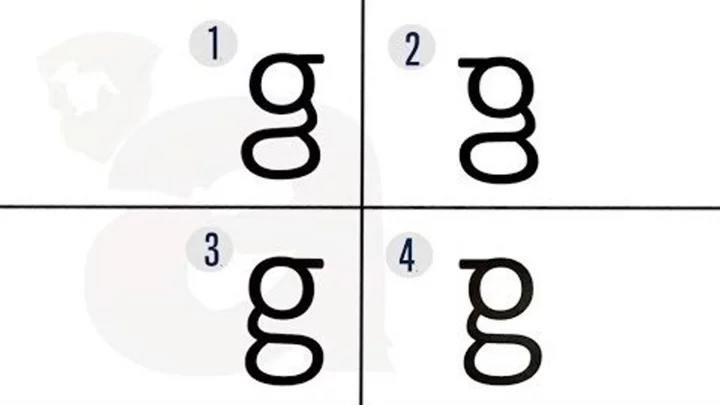We use letters every day of our lives, but apparently, there's one lowercase letter that we do not recognise.
Psychologists at Johns Hopkins University have discovered that most people aren't aware that there are two types of the lowercase letter g.
One of them is the open tail 'g' which most of us would have written out by hand with its image comparable to "a loop with a fishhook hanging from it.
Sign up to our free Indy100 weekly newsletter
Then, there is the loop tail 'g' which appears in print form e.g. books and newspapers as well as in Serif fonts such as Times New Roman and Calibri - we've all seen this type of letter millions of times, but it seems remembering it is an entirely different challenge altogether.
There were 38 volunteers in the study published by the Journal of Experimental Psychology: Human Perception & Performance and they were asked to list letters that they thought had two variations in print.
In the first experiment, "most participants failed to recall the existence of looptail g" while only two people could write looptail g accurately.
"They don't entirely know what this letter looks like, even though they can read it," co-author Gali Ellenblum said.
Next participants were asked to look for examples of the looptail g in the text and were asked to reproduce this letter style after this and in the end, only one person could do this while half the group wrote an open tail g.
Finally, those taking part in the study were asked to identify the letter g in a multiple-choice test with four options of the letter where seven out of 25 managed to do this correctly.
So how can we know a letter but not recognised it?
It could be to do with the fact we are not taught to write this kind of 'g," according to Michael McCloskey, senior author of the paper.
"What we think may be happening here is that we learn the shapes of most letters in part because we have to write them in school. 'Looptail g' is something we're never taught to write, so we may not learn its shape as well," he said.
"More generally, our findings raise questions about the conditions under which massive exposure does, and does not, yield detailed, accurate, accessible knowledge."
In a play-along video on John Hopkin's YouTube channel, four different g's labelled from one to four appear on the screen where it asked viewers to guess which is the correct looptail 'g'.
(*Spoiler ahead*)
The correct answer is number 3.
Meanwhile, this study has also led research to question the impact that writing less and using more devices has on our reading abilities.
"What about children who are just learning to read? Do they have a little bit more trouble with this form of g because they haven't been forced to pay attention to it and write it?" McCloskey said.
"That's something we don't really know. Our findings give us an intriguing way of looking at questions about the importance of writing for reading..."
Have your say in our news democracy. Click the upvote icon at the top of the page to help raise this article through the indy100 rankings.

